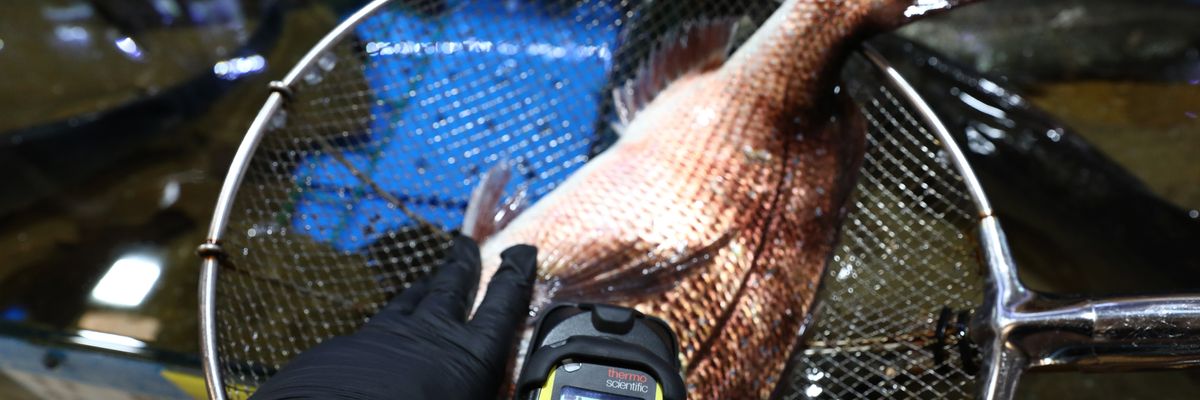With the Tokyo Electric Power Company planning to begin a release of 1.3 million tonnes of treated wastewater from the former Fukushima Daiichi nuclear power plant in Japan next month, reports of radioactive fish in the area have raised alarm in recent years—and new reporting on Sunday revealed that the problem is far from mitigated, prompting questions about how dangerous the company's plan will be for the public.
The plant operator, known as TEPCO, analyzed a black rockfish in May that was found to contain levels of radioactive cesium that were 180 times over Japan's regulatory limit,
The Guardianreported.
The fish was caught near drainage outlets at the plant, where three nuclear reactors melted down in March 2011 during a tsunami.
Rainwater from the areas surrounding the reactors flows into the area where the fish was caught.
The high level of cesium—which, depending on the level of exposure, can
cause nausea, vomiting, diarrhea, bleeding, coma, and death in people who eat contaminated food—was discovered as TEPCO prepares to begin the discharge of treated wastewater which has been used to cool fuel from the melted reactors. The wastewater has mixed with rainwater and groundwater since the tsunami.
TEPCO has acknowledged that fish near the drainage outlets have been unsafe for consumption, as the concentration of cesium in seabed sediment in the area has measured more than 100,000 becquerels per kilogram. The maximum legal level is 100 becquerels per kilogram.
"Since contaminated water flowed into the Fukushima Daiichi nuclear power station port immediately after the accident, TEPCO has periodically removed fish from inside the port since 2012," an official for the company told The Guardian.
A fish was detected to have high levels of radiation near Fukushima in January 2022, with authorities positing that the fish had escaped from the drainage outlet. Shipments of black rockfish caught off the coast of Fukushima prefecture were promptly suspended and have not been resumed.
More than 40 fish with cesium levels over the legal limit were found in the plant's port between May 2022 and May 2023, and 90% came from the inner breakwater where water flows from the area around the melted reactors.
The Nuclear Regulation Authority in Japan and the United Nations' International Atomic Energy Agency (IAEA) have both given their approval of TEPCO's plan to release the wastewater into the Pacific Ocean, which it says it needs to do to secure space for decommissioning the plant. The discharge process, using an Advanced Liquid Processing System (ALPS), would take decades to complete.
While the IAEA said earlier this month the plan will have a "negligible radiological impact to people and the environment," Paul Dorfman of Ireland's Radiological Protection Advisory Committee said Monday that reports like the one about the contaminated rockfish are likely "far from over."
"Believing [and] pretending some things are not harmful because it is convenient is literally killing the planet," said American University sociologist Celine-Marie Pascale, comparing the ecological and climate crisis to authorities' insistence that the water discharge is safe. "Corporate interests triumph at global expense once again."
Officials in Hong Kong have said they will ban food imports from 10 prefectures in Japan if the release moves forward in August, and some Chinese wholesalers have stopped accepting seafood imports from the country.
In addition to concerns about cesium, TEPCO has admitted that the ALPS it plans to use may not eliminate isotopes including ruthenium, cobalt, strontium, and plutonium. The system is also not able to remove tritium, the radioactive isotope of hydrogen.
Masanobu Sakamoto, president of JF Zengyoren, Japan Fisheries Cooperatives, said in June that the group "cannot support the government's stance that an ocean release is the only solution."

